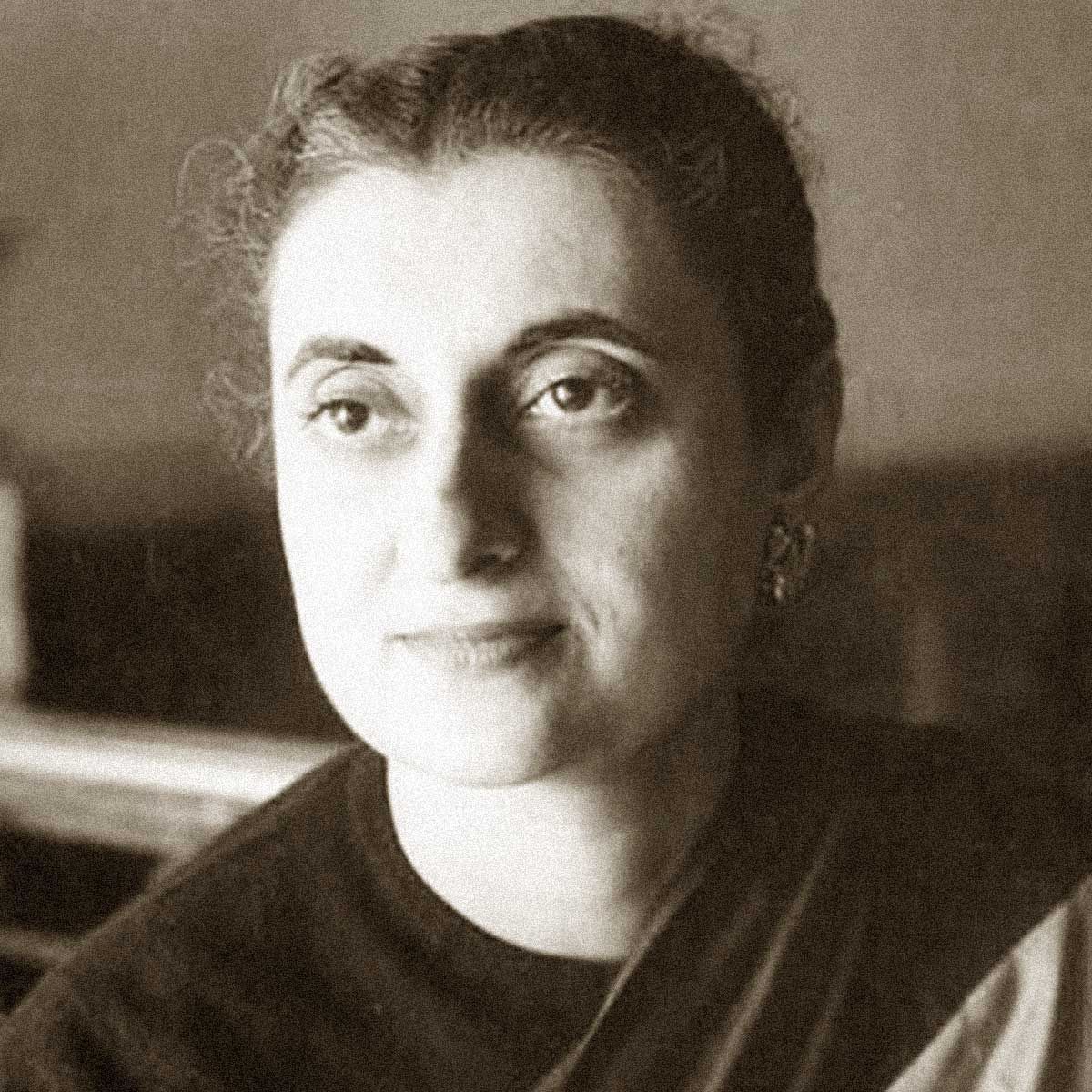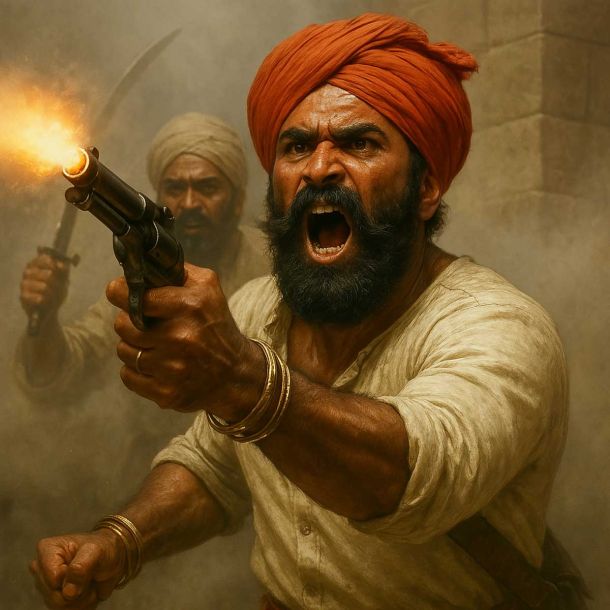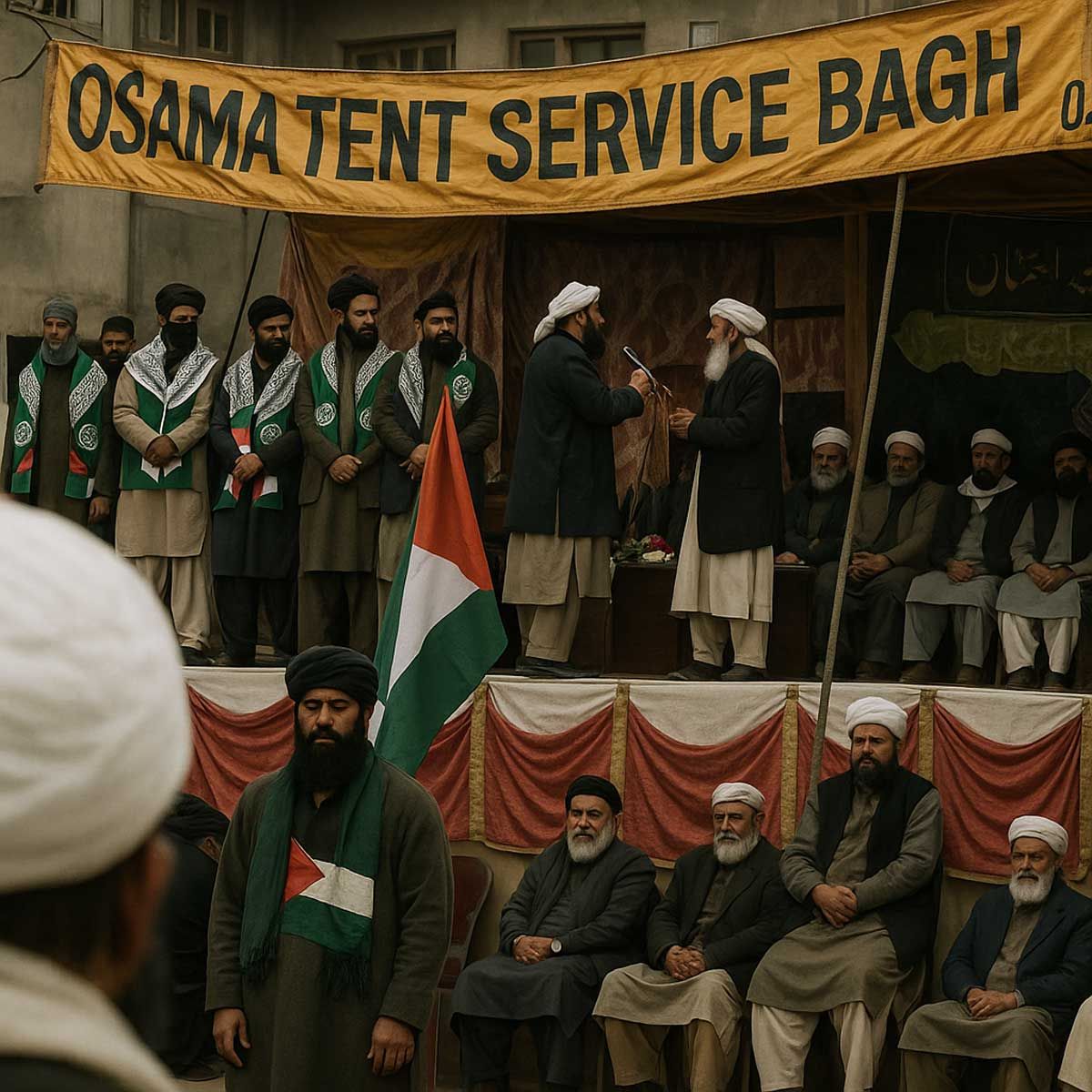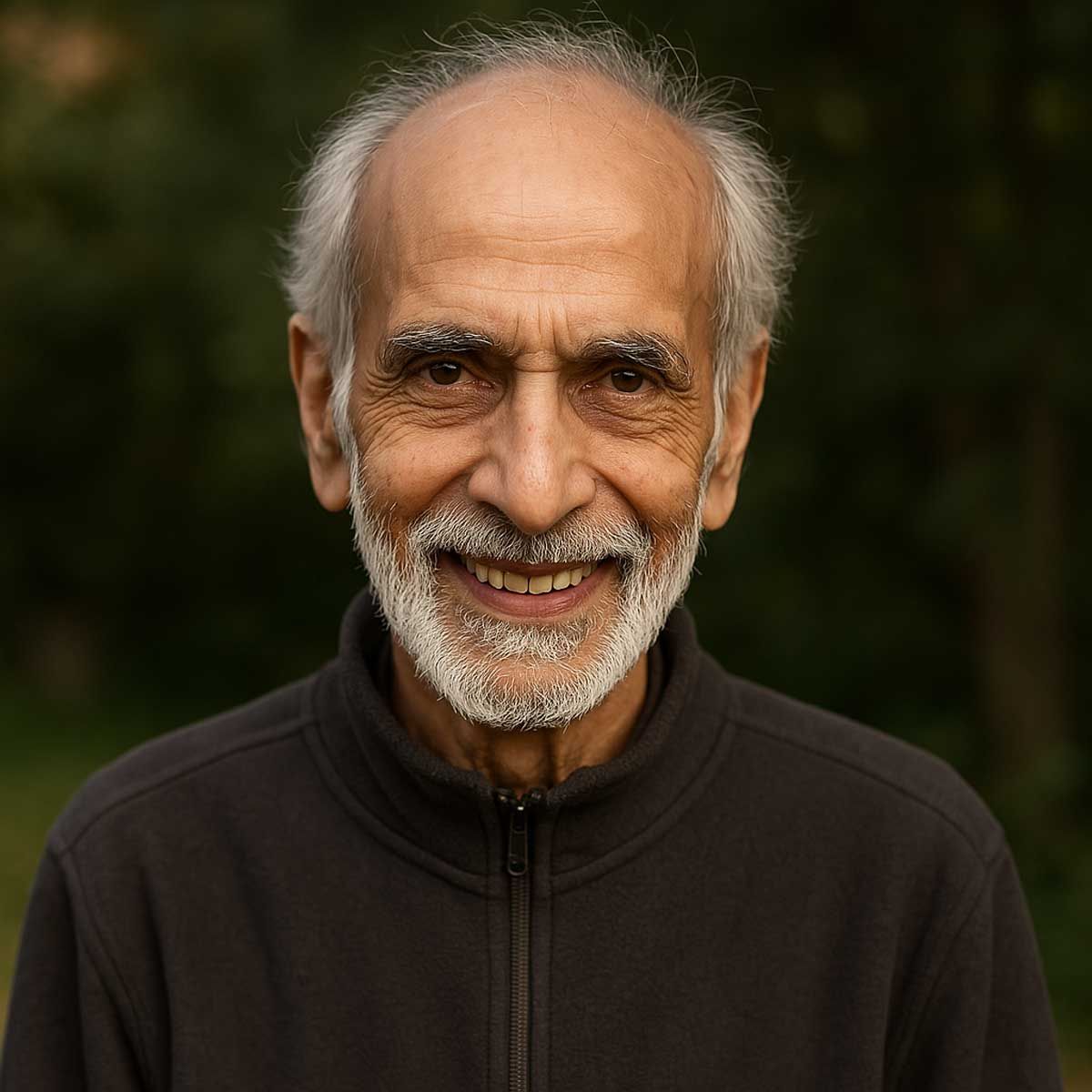Sanatan Articles
Satyaagrah
Written on
Satyaagrah
Written on
Satyaagrah
Written on
Satyaagrah
Written on
Satyaagrah
Written on
JOIN SATYAAGRAH SOCIAL MEDIA
How undisciplined Indira Gandhi when expelled from Congress Party by 'Syndicate', divided the party into two: 12 November 1969

November 12 holds a special significance in the history of India. For this was the day in 1969 when one of India’s most powerful prime ministers, Indira Gandhi, was expelled from her own party on charges of violating the party discipline.
On November 12, 1969, the then Prime Minister of India, Indira Gandhi was purged out of the Congress party after simmering tensions between herself and the “Syndicate”, a group within the Congress party, broke out in the open. The party President, S. Nijalingappa, one of the foremost leaders of the “Syndicate” expelled Prime Minister Indira Gandhi from the party for “fostering a cult of personality”. Indira’s ouster ultimately led to the split in the Congress party.
The fallout between the “Syndicate” and Indira Gandhi could be ascribed to the leadership crisis in Congress following the demise of India’s first prime minister Jawaharlal Nehru in 1964. Nehru committed a host of blunders during his tenure as the country’s head but one of his lesser talked about failures is not leaving behind him a credible deputy who would lead the Congress party in his absence or after his retirement.
 |
As a consequence, there were several regional leaders in the Congress party but none powerful enough to fill in the void left by Nehru. Mutual interest and self-preservation dictated them to join hands and take the reigns of the party, which would have been practically impossible in their respective individual capacities. This group of powerful leaders who were non-Hindi speaking came to be called the “Syndicate” and they started wielding outsize influence on the Congress party after Nehru’s demise.
The preeminence of the “Syndicate” group was such that they are largely credited for electing responsible for electing Lal Bahadur Shastri and Indira Gandhi as the prime minister for the first time after Nehru’s death. Most of the members of this “Syndicate” were from the South, led by K Kamaraj. Indira locked horns with this “Syndicate” and was re-elected as the Prime Minister of the country in the 1967 elections. However, she had to yield to the Syndicate’s demand of appointing Morarji Desai as the deputy prime minister.
1969 Presidential elections pits Gandhi against the Syndicate
Indira was chafed at the repeated interference of the syndicate in the smooth functioning of the party and hobbling the Prime Minister of the country in effectively dispensing her duties. The syndicate, on the other hand, could not quite come to grips with the fact that the “gungi gudiya” (dumb doll)—their snide reference for Indira—had started raising opposition against them.
During that time, India’s then-president Dr Zakir Hussain died and VV Giri, who was the vice president, was made the acting president. The Syndicate wanted Neelam Sanjiva Reddy to succeed Khan as the president of the country. Reddy was already the Lok Sabha speaker then and Indira feared his appointment to the post of President would pave the way for the Syndicate to replace her with Morarji Desai as the Prime Minister of the country.
 Indira Gandhi with K Kamaraj and Morarji Desai |
Indira Gandhi without knowing to anyone promised her support to V.V.Giri and encouraged him to nominate in presindential elections as an independent candidate to win over Sanjiva Reddy, with support of Indira Gandhi he announced to contest the elections and resigned as acting president to take part in elections.
In a bid to avert this crisis, Indira floated the name of Jagjivan Ram in the Congress Working Committee but it was vetoed by the Syndicate and Reddy was selected as the official candidate for president. In the absence of Giri, CJI Hidayullah was made the acting president.
The syndicated suggested Giri could be appointed as the Lok Sabha speaker. This was the moment when the rift between Indira and the Syndicate finally came out in open. Although Indira had to contend with the syndicate’s choice of Neelam Sanjiva Reddy during the 1969 presidential elections, being the leader of Congress members in Lok Sabha, she played her trick and refused to issue a whip to Congress members.
Indira Gandhi knew that before she could support V.V.Giri against her own party's nominee, she would have to regain the initiative within the party. She also went ahead and filed the nomination for Sanjiva Reddy, though she refrained from issuing a whip to Congress MPs of India .On 18 July 1969, Indira Gandhi took away the Finance portfolio from morarji Desai on the grounds that he was incapable of implementing her programme. Assuming the Finance portfolio herself, Indira Gandhi immediately, on 18 July, without consent of anyone nationalised 14 major banks through a presidential ordinance.
 |
She also announced her plan to withdraw the special privileges of the Princes. Morarji felt humiliation and left with no option but to resign from the Cabinet. Morarji decided to swallow humiliation and wait for Sanjiva Reddy to be elected as the President. Indira Gandhi wanted to support VV. Giri, but did not know how she could go against her party’s candidate whose nomination papers she had filed. The Syndicate realized that Indira Gandhi may support VV. Giri and thought to approach the main opposition, to assure Sanjiva Reddy’s election. It was blunder that Nijalingappa met the leaders of Jan Sangh and Swatantra and persuaded them to cast their second preference votes.
Indira Gandhi did not formally reveal her preference until the night before the elections, on the night of elections Gandhi immediately accused the Syndicate of having struck a secret deal with communal and reactionary forces in order to oust her from power. She now, more or less openly, supported VV. Giri by refusing to issue a party whip in favour of Sanjiva Reddy and by asking Congress MPs and MLAs to vote freely according to their ‘conscience’, which was an indirect appeal to vote against the Congress’ chosen candidate. VV Giri, the rebel Congress candidate won the election. A total of 163 Congress MPs voted for VV Giri and 11 out of the 12 Congress-ruled states also got a majority.
Indira Gandhi expelled from the Congress party, resulting in the split of the party
The Syndicate decreed that CD Deshmukh, the candidate of opposition Jana Sangh and Swatantra Party, should be given the second priority vote. But Indira Gandhi had her way and ensured that the Congress’ official candidate Neelam Sanjiva Reddy is defeated by the rebel Congress candidate, VV Giri. Following the presidential elections, Indira Gandhi launched a concerted campaign to weaken the hold of the Syndicate on the Congress party. She toured various parts of the country and mobilised Congressmen as a show of strength to the syndicate.
 Morarji Desai with former prime minister Indira Gandhi and S Nijalingappa during AICC meeting, Bangalore. (Image Source: Indian Express) |
Indira Gandhi’s supporters went against their own party, demanding a special Congress session to elect a new president. They were convinced that the Syndicate did not enjoy the majority and was clinging on to the power through illegitimate means. Disgruntled by Indira Gandhi and her supporters, Nijalingappa wrote an open letter, accusing the Prime Minister and her associates of sabotaging the internal democracy of the party. In response to the letter, Indira Gandhi stopped attending the meetings called by Nijalingappa.
Then on 12 November 1969, the Congress Working Committee met at two places — one at the PM’s residence and the other at the Congress’ Jantar Mantar road office. At the meeting that held at the Jantar Mantar office, Nijalingappa expelled Indira Gandhi from the party on disciplinary grounds. Indira’s expulsion led to the split in the Congress party, with 446 of the 705 Congress members walking over to Indira’s side. The faction led by Indira Gandhi was known as Congress(R) and also referred to as “Indicate” while the one led by the syndicate leaders came to be known as Congress(O) or “Syndicate”. Then Indira dropped the no-confidence motion of Congress (O) with the help of CPI and DMK.
Within hours of the announcement of her expulsion which sent groups of student demonstrators shouting pro-Mrs. Gandhi slogans around the city, hundreds of baton-carrying policemen were posted outside the residences of Mr. Nijalingappa and his supporters in the Working Committee to provide them adequate security.
In this way, Indira got freedom from many Syndicate leaders Kamaraj, Ninjalingappa, SK Patil and Morarji etc. After this incident, Ninjalingappa retired from active politics and remained involved in social work. He had to pay the price to take the decision to expel Indira so that people forgot that he had given the maximum land for the rehabilitation of the people of Tibet where the four big colonies or towns were erected for Tibetans. That's why in 2011, the Dalai Lama himself came to unveil his statue.
References:
zeenews.india.com - Zee Media Bureau
hindustantimes.com - HT Correspondent
opindia.com - Jinit Jain
 Support Us
Support Us
Satyagraha was born from the heart of our land, with an undying aim to unveil the true essence of Bharat. It seeks to illuminate the hidden tales of our valiant freedom fighters and the rich chronicles that haven't yet sung their complete melody in the mainstream.
While platforms like NDTV and 'The Wire' effortlessly garner funds under the banner of safeguarding democracy, we at Satyagraha walk a different path. Our strength and resonance come from you. In this journey to weave a stronger Bharat, every little contribution amplifies our voice. Let's come together, contribute as you can, and champion the true spirit of our nation.
 |  |  |
| ICICI Bank of Satyaagrah | Razorpay Bank of Satyaagrah | PayPal Bank of Satyaagrah - For International Payments |
If all above doesn't work, then try the LINK below:
Please share the article on other platforms
DISCLAIMER: The author is solely responsible for the views expressed in this article. The author carries the responsibility for citing and/or licensing of images utilized within the text. The website also frequently uses non-commercial images for representational purposes only in line with the article. We are not responsible for the authenticity of such images. If some images have a copyright issue, we request the person/entity to contact us at This email address is being protected from spambots. You need JavaScript enabled to view it. and we will take the necessary actions to resolve the issue.
Related Articles
- How Communists betrayed India - 100 Years of Russian Revolution
- Rajiv Gandhi didn't call Army for 3 days, had no intention to stop 1984 Sikh massacre: Watch his speech justifying the riot
- Indira Gandhi’s bahu published intimate photos of Jagjivan Ram’s son in her magazine: This 'Saas-Bahu ki Saajish' mothered India’s first major political sex scandal which cost Jagjivan his political career
- Ghost from the past: Unseen picture of Nehru voting in favour of partition of India goes viral
- Saam Daam Dand Bhed: How Indira and Sanjay Gandhi pulled off the Maruti scam
- Depth of Soviet penetration in Indian media is exposed through declassified CIA document from 2011
- How Nehru had laid blue print of Indira Gandhi inheriting his PM post
- Can Communism and Democracy Coexist - 100 Years of Russian Revolution
- Wikileaks and 5 lesser know facts of Indira Gandhi: Nuclear technology, corruption and foreign relations
- Godse's speech and analysis of fanaticism of Gandhi: Hindus should never be angry against Muslims
- "PM Modi mentions the 1966 bombing of Mizoram": When Indira Gandhi had ordered the IAF to carry out an aerial attack in Aizawl and its aftereffects that still reverberate in India's history, capturing Mizoram's tumultuous journey through adversity
- Nehru lost election and became first Prime Minister of free India: All thanks to miraculous Gandhi
- Northeast is not the Part of Pakistan because of 'Netaji': Subhas Bose and the ‘special’ case of Assam
- Calcutta Quran Petition: A petition to ban the Quran altogether was filed 36 years ago, even before Waseem Rizvi petitioned for removing 26 verses from Quran
- Opposition woes: Congress missing in action at the Rastra Manch, Prashant Kishore meeting Sharad Pawar and much more





















